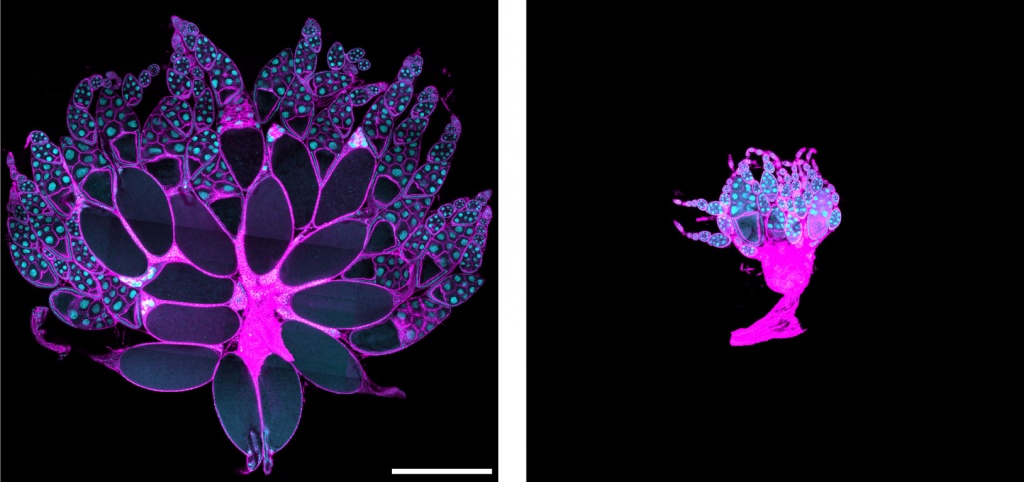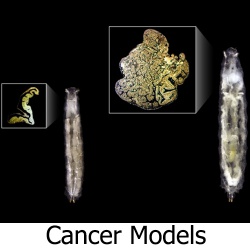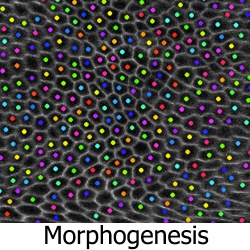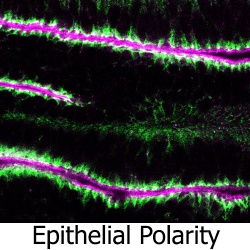
 Epithelia are the core cell type of animal tissues and, with their highly regular morphology, represent an ideal system in which to uncover general principles of cell architecture. The polarization of the plasma membrane and cytocortex into distinct apical and basolateral compartments offers a dramatic instance of regulated organization, while the distinctive shapes of squamous, cuboidal and columnar epithelia exemplify how this organization can be regulated to achieve specific structures. Because these aspects of epithelial organization are closely conserved across animal species, our findings on flies are likely to be directly relevant to vertebrates as well. Our general goal is to gain a global picture of the molecules and mechanisms that mediate epithelial organization.
Epithelia are the core cell type of animal tissues and, with their highly regular morphology, represent an ideal system in which to uncover general principles of cell architecture. The polarization of the plasma membrane and cytocortex into distinct apical and basolateral compartments offers a dramatic instance of regulated organization, while the distinctive shapes of squamous, cuboidal and columnar epithelia exemplify how this organization can be regulated to achieve specific structures. Because these aspects of epithelial organization are closely conserved across animal species, our findings on flies are likely to be directly relevant to vertebrates as well. Our general goal is to gain a global picture of the molecules and mechanisms that mediate epithelial organization.
In addition to these cell biological questions, the laboratory also studies how epithelial architecture contributes to organismal development. In one line of research, we seek to understand how epithelial organization promotes the control of cell proliferation, a surprising connection revealed by the Drosophila ‘neoplastic’ tumor suppressor genes (TSGs), which simultaneously control both cell polarity and tissue growth. Loss of any neoplastic TSG induces uncontrolled growth of disorganized cells that show several striking similarities to malignant human tumors; we seek to uncover the mechanism involved. In another line of research, we study how dynamic changes in cellular properties such as polarity and adhesion interface with physical forces during epithelial morphogenesis. We use a simple organ –the Drospohila folllcle— to explore the genetic, molecular, and biomechanical mechanisms that drive elemental cell and tissue shape changes.

Two key themes underlie our research approach. The first theme is the importance of studying cell polarity, proliferation, and morphogenesis in vivo, in real tissues and organisms. Much of animal biology happens in the context of epithelial sheets, and studies in this context allow exploration of critical biological phenomena that cannot be replicated in isolated situations. The second theme is the value of unbiased forward genetic screens as entry points to understanding biological problems. We deploy this familiar intellectual strategy in innovative ways and combine it with an intimate knowledge of the genetics, development, and cell biology of the fly. This discovery-based approach opens up new areas and permits conceptual advances as a prerequisite to mechanistic studies. With these themes, we take a broad-based, function-centered approach to epithelial biology to seek novel insights relevant to basic science and human health.




